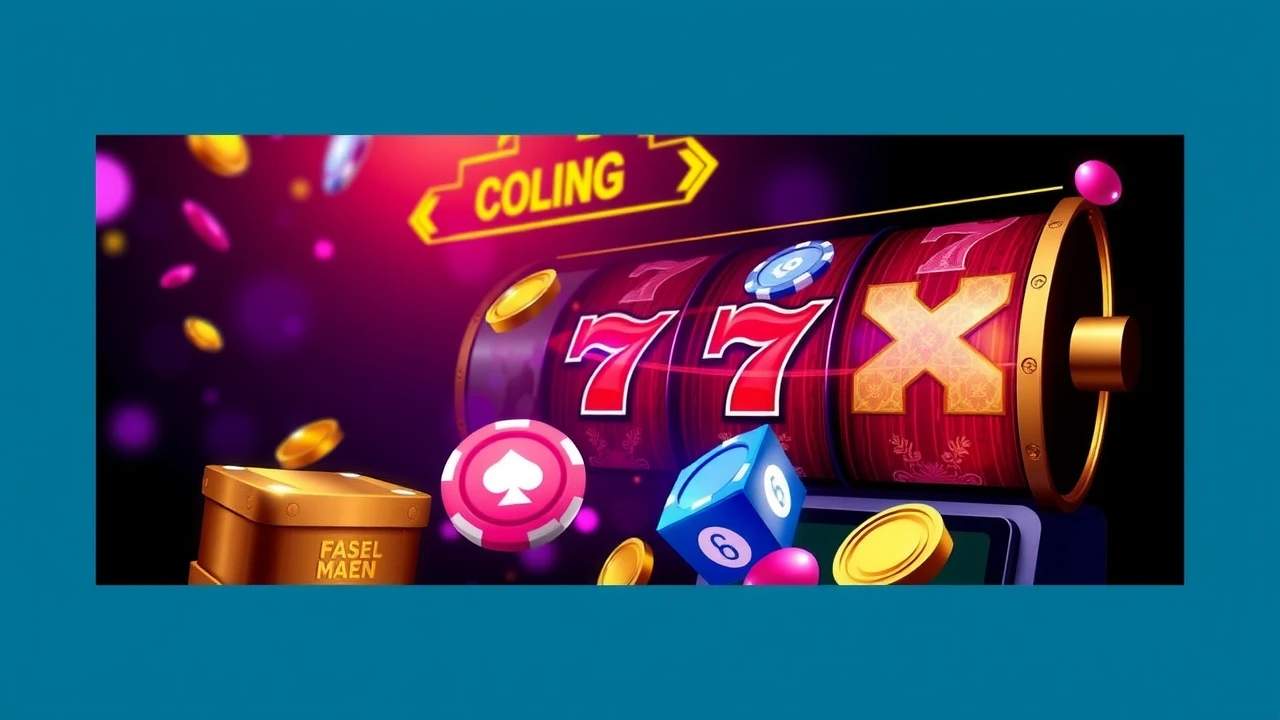
The fascinating Development of Casino Gaming Games Over the Centuries

Casino games have captivated players for centuries, transforming from simple pastimes to complex experiences that integrate chance, strategy, and fun. From the early beginnings of gambling in cultures like the ancient societies of Mesopotamia and Rome to the dazzling corridors of contemporary casinos, the history of these games uncovers much about our nature and our relationship with luck. As societies have intertwined and technology has advanced, casino games have changed, illustrating societal changes and developments in gameplay.
The earliest forms of gambling likely featured simple dice-based games and wagering on the results of sporting events. Through the years, these early games grew into more structured games like playing card games, the game of roulette, and the myriad one-armed bandits that fill the floors of casinos today. Each period brought its own set of rules, design elements, and cultural importance. In the current era, casino games persist in evolving with the rise of digital gaming platforms, enabling players from various parts of the world to engage in a common experience, further blending the traditional with the digital age.
Ancient Origins of Casino Activities
Casino games have origins that stretch back to ancient civilizations, where betting was deeply embedded in social traditions and cultural rituals. The first known instances of betting emerged in ancient Mesopotamia around 3000 BC, featuring simple dice games made from bone material. These initial games laid the basis for more advanced betting games, showing human beings' natural desire to seek wealth and amusement through luck.
As civilizations progressed, so did their gambling interests. In early China, around 2300 BC, tiles were unearthed that resembled primitive basic forms of a lottery activity. More organized forms of gambling arose in the Roman civilization, where activities of chance were a popular recreation, often taking place in community events. The ancient Romans developed various wagering games, which included die and table activities, showing the widespread nature of gambling across various social strata.
With the passage of ages, these primitive games shaped the development of modern casino games. In the Middle Ages, playing card games became prevalent in Europe, paving the way for the professional gaming venues we know today. The shift from casual gambling to formal gambling in pubs and personal homes marked a major transformation in how people engaged with games of luck, leading to the eventual establishment of casinos as dedicated venues for betting.
The Rise of Contemporary Gambling Industry
The late 1960s and 1970s marked a pivotal transition in the world of casino games, driven by technological advancements and changes in societal views towards wagering. The emergence of computers and the World Wide Web altered the way gamblers interacted with their favorite casino games. Virtual casinos emerged, allowing gamers to enjoy traditional casino classics like Texas Hold'em and 21 from the convenience of their homes. This new online environment not only broadened access to casino games but also attracted a younger crowd who found the comfort and diversity appealing.
As online gambling gained popularity, so did developments in casino tech. The development of sophisticated programs and visual elements converted conventional gambling games into captivating adventures. Gamblers could now interact with live dealers through live streaming, bringing the atmosphere of physical casinos directly into their houses. This blending of live gaming with digital interfaces created a unique hybrid experience that boosted the community element of playing, making it possible for individuals to engage and challenge with fellow gamers around the world.
Furthermore, the rise of mobile gaming substantially changed the gambling environment. With the ubiquitous use of mobile phones and tablets, players can access their favorite casino games anywhere, at any time. Mobile apps offer a extensive range of games customized for touchscreens, serving the fast-paced daily life of contemporary gamers. This availability has resulted in growing participation in casino games, driving the surge of the gaming industry. As a result, the future of casino gaming continues to progress, adjusting to new technologies and changing consumer preferences.
How Technology Influences Casino Games
Technology's advancement has greatly changed casino games, enhancing the overall experience for players for gamblers globally. As the internet emerged, online casinos were created, allowing players to enjoy their favorite games from the comfort of their homes. This change not only made casino games more available but also expanded the variety of games offered, as online platforms could host numerous variations of traditional games without the limitations of brick-and-mortar establishments.
Mobile technology further transformed the casino gaming landscape. As smartphones and tablets became widespread, players now have the ability to engage in casino games whenever and wherever they want. This flexibility has resulted in the development of dedicated mobile applications and optimized websites that offer smooth gaming experiences. Additionally, advancements such as live dealer games have delivered the genuine feel of a casino into players' living rooms, bridging the gap between physical and online gaming. non GamStop casinos UK
Moreover, advancements in AI and virtual reality are leading to the next generation of casino games. AI improves game design and player interaction, creating customized experiences based on user behavior and preferences. Meanwhile, virtual reality provides immersive environments where players can engage in a virtual casino environment, making the gaming experience more exciting and lifelike. As technology continues to evolve, the future of casino games seems bright, filled with limitless opportunities for advancements and entertainment.



